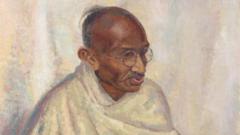In a poignant shift for Leicester Square, a cultural landmark in London, the Westminster City Council officially banned street performances this week, a decision stirring mixed emotions among locals and visitors alike.
**London’s Iconic Leicester Square Faces Musical Silence as Busking Ban is Imposed**

**London’s Iconic Leicester Square Faces Musical Silence as Busking Ban is Imposed**
Authorities respond to noise complaints, halting street performances in the heart of London. Local opinions vary on the impact of the ban.
The vibrant sounds of street musicians have graced Leicester Square for generations, from aspiring artists to internationally renowned stars like Rod Stewart and George Michael. However, due to persistent noise complaints, the Westminster City Council made the controversial decision to stop all busking in this renowned tourist spot.
The decision followed a court case brought by Global, a media company located in the area, asserting that the noise generated by street performers was so disruptive that it forced employees to retreat to quieter spaces, such as cupboards, to make phone calls. A judge described the repetitive sounds of the performances, including pop song covers, as a form of “psychological torture.”
While some view street performers as a charming aspect of urban life, others resonate with the complaints regarding overwhelming noise levels. On the morning following the ban, Leicester Square was noticeably quieter, with empty spaces where musicians once captivated audiences.
Local opinions reflected the division. Abu Khan, a 28-year-old who works long hours at a convenience store in Leicester Square, expressed relief at the ban, citing the deafening music that often left him unable to hear customers. “Oh, thank God,” he exclaimed when informed about the ruling.
Nevertheless, the community remains divided. Many miss the vibrancy and live music that buskers contributed to the atmosphere. As the city grapples with this profound change, it's clear that the heartbeat of Leicester Square has shifted dramatically, leaving residents and tourists to ponder the complex balance between noise and enjoyment in public spaces.
The decision followed a court case brought by Global, a media company located in the area, asserting that the noise generated by street performers was so disruptive that it forced employees to retreat to quieter spaces, such as cupboards, to make phone calls. A judge described the repetitive sounds of the performances, including pop song covers, as a form of “psychological torture.”
While some view street performers as a charming aspect of urban life, others resonate with the complaints regarding overwhelming noise levels. On the morning following the ban, Leicester Square was noticeably quieter, with empty spaces where musicians once captivated audiences.
Local opinions reflected the division. Abu Khan, a 28-year-old who works long hours at a convenience store in Leicester Square, expressed relief at the ban, citing the deafening music that often left him unable to hear customers. “Oh, thank God,” he exclaimed when informed about the ruling.
Nevertheless, the community remains divided. Many miss the vibrancy and live music that buskers contributed to the atmosphere. As the city grapples with this profound change, it's clear that the heartbeat of Leicester Square has shifted dramatically, leaving residents and tourists to ponder the complex balance between noise and enjoyment in public spaces.





















